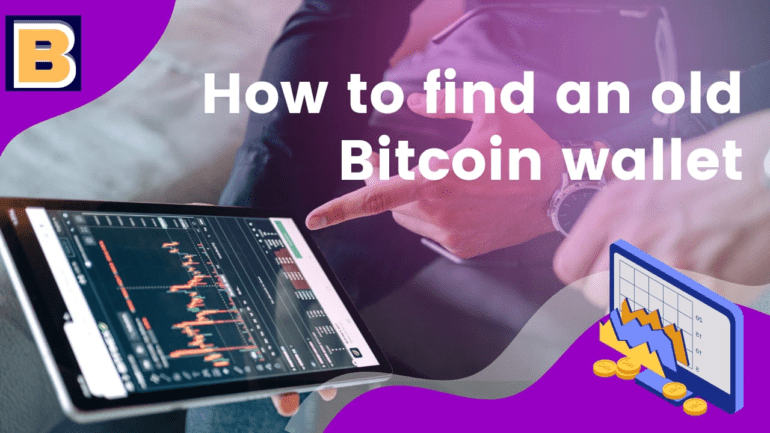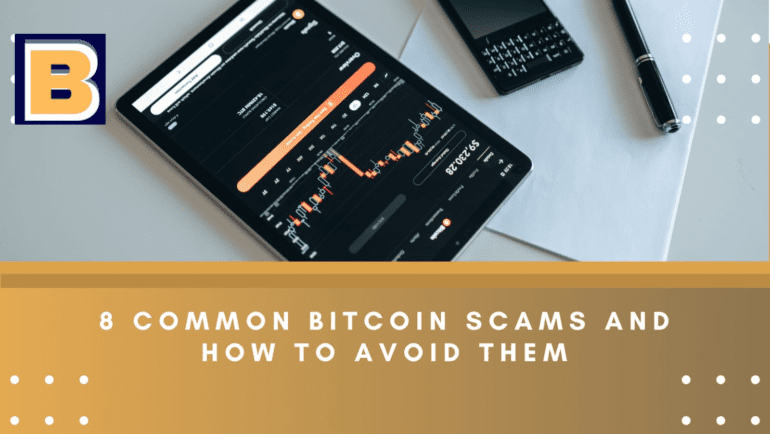
How to find a lost cryptocurrency wallet?
A Bitcoin wallet is where a person keeps their cryptos securely. Basically, it stores addresses and passwords, which are long sequences of numbers and letters, which make it possible to move cryptos. A digital address consists of 2 keys: a private key and a public key.
In short, private rain is your password to access the address. This key should never be shared, as it allows you to move your cryptos. The public key is the code you must provide so that other people can deposit crypto into your account.
As the private key is used to move the Bitcoins in the wallet, losing this key is a real problem, because, without it, you can lose your Bitcoins. Some tips for finding a lost Bitcoin wallet are:
- Check folders and devices
The first step in finding a lost wallet is to check that you have saved passwords or recovery codes for the wallet. To do this, search your devices such as smartphones, computers, and cloud servers.
2- Check the saved access passwords
Most common browsers like Chrome and Safari usually save some passwords. Therefore, a tip is to check the passwords saved in the browsers. For example, to access passwords saved in Google Chrome, just access: //settings/passwords. Check websites and crypto companies that you have used in the past.
3- Look for notes and physical items
Check your notes to make sure you wrote down your password. You can even write it down on a piece of paper and keep it in a safe place and then forget about it. Another option is to have the keys saved on the pen drive. Anyway, the tip is to look in physical places where you may have kept the keys.
- Check websites and services for cashback and promotions
Finally, make sure you don’t have lost Bitcoins on cashback sites or promotions. Around 2015 Bitcoin cost very little, so many websites, cashback services, and promotions used Bitcoin as a prize in online games, challenges, and the like.
How to recover cryptocurrencies?
If you lost your Bitcoin wallet, some tips to recover it are:
- Reflect
The first tip for recovering lost Bitcoin is to reflect on the information related to it. For example, what type of wallet did you use and what email address did you use, and other data related to your BTC account?
With this data in hand, make a list of possible passwords and PIN codes that you believe could be the password. The way to recover your Bitcoins will depend on the type of wallet you have, for example:
Web Wallets: To access a Bitcoin web wallet, you need internet access. Therefore, a tip is to check your browser history for possible traces of the wallet provider’s website.
Hardware wallets: These wallets are physical devices. Therefore, if you have asked for your wallet, look in every room in your home. You may have stored your wallet so well that you forgot where you put it.
Mobile Wallets: If you have accidentally uninstalled Wallet from your phone, you can search the App Store or Google Play for the app and download it again.
Printed wallets: This type of wallet is the hardest to find. After all, you might have written down your private keys in a notebook or thrown away the printed wallet in a book or folder. Therefore, you need to look in all possible places, but still, you may not find it.
Desktop wallets: Lastly, if you lost a desktop Bitcoin wallet, scan all the folders on your computer. Search everywhere, even folders you rarely visit.
- Bitcoin recovery tools
If you lost access to your BTC wallet due to a hardware or software failure, you might still be able to regain access.
For example, you may have asked for your details after your computer suddenly stopped working. In this case, you can look for corrupted data recovery tools, faulty software, and hardware.
3- What is your seed
In short, the seed is the master key generated when the account is created. It is composed of 12 or 24 words in English and it is through it that the public and private keys are generated, which in turn allow access to your wallet address.
Therefore, to know if you have Bitcoins to recover, it is essential that you have the seed in hand. If you don’t know where your seed is, check your notes and possible places you may have safely saved this information.
With the seed in hand, you can not only check if you have lost Bitcoins but also recover and transfer these cryptos to a new wallet.
4- Seek help to recover Bitcoin
This is a tip that you should use with caution. You shouldn’t ask anyone for this kind of help: the person needs to be completely trustworthy.
5- Access your old wallet when you find it
As soon as you find your lost wallet, log in and make backup copies. If you have Bitcoins in that wallet, you can download the entire blockchain or go to blockchain.com. The second option may be the most affordable as downloading the entire blockchain is quite complicated as it weighs over 300 gigabytes of data.
To access blockchain.com, you just need to create an account and login. After that, access the settings and enter “addresses”, where an option to import BTC addresses will appear. Finally, enter your private keys, with this, you will have access to your wallet.
5- Desperate measures
With Bitcoin’s price skyrocketing, it’s no wonder that some people who have lost access to their wallets have taken desperate measures. Some examples of this were:
Hypnosis
In the early years of Bitcoin, many people forgot their passwords. Thus, many of them resorted to hypnosis to try to remember. Even James Miller, an American hypnotist, disclosed his services in favor of Bitcoin investors who had forgotten their passwords. The service cost 1 BTC.
Sanitary landfill
British IT professional James Howell mistakenly threw his hard drive in the trash in 2013. With this small mistake, he simply threw 7,500 BTC in the trash! Today, that would be equivalent to more than $200 million. Imagine how desperate he was! Since Howell didn’t want to lose all that money, he wanted to look for the hard drive in the landfill.
However, the city council did not let him do this, as the landfill is not open to the public. Remember: breaking into the landfill is considered a crime. So, in the end, he lost millions.
Hire a hacker
In 2017 Wired Mark Frauenfelder hired a 15-year-old to break into his Bitcoin vault. That’s because he lost the paper where he had written down the password.
Thus, the teenager received $ 3,700 in BTC after sending a video so that Frauenfelder could hack his own computer and discover the password. Indeed, Frauenfelder followed the instructions and got his wallet password.
Anyway, in the text above you checked tips for finding lost cryptocurrency wallets. Take the opportunity to learn how to choose an ADA Cardano wallet and how secure a paper wallet is.

There are several Bitcoin scams involving cryptocurrencies in the blockchain space. The most common ones include extortion, fake exchanges, fake giveaways, phishing on social media, copy-and-paste malware, phishing emails, Ponzi and pyramid schemes, and ransomware.
Let’s briefly dwell on each of them so that you can learn how to avoid the most common Bitcoin scams and how to hedge your cryptocurrency holdings.
Introduction
As long as new technologies are introduced into the world, scammers will continue to look for a way to pursue their activities. Unfortunately, Bitcoin offers interesting opportunities to crypto-scammers, since it is a cross-border digital currency.
The decentralized nature of Bitcoin allows you to have full control over your investments. However, it also complicates the establishment of an appropriate regulatory and law enforcement framework. If scammers manage to trick you into making mistakes when using Bitcoin, it may happen that you end up stealing your BTC, and there is practically nothing you can do to get your cryptocurrency back.
Still, it’s important to understand how scammers work and to learn how to spot potential warning signs. There are many Bitcoin scams to be wary of, but some are more common than others. That’s why we’re going to take a look at eight common Bitcoin scams and learn how to avoid them.
Common Bitcoin Scams (and How to Avoid Them!)
Blackmail
Extortion is a well-known method by which fraudsters threaten others with the publication of sensitive information if they are not somehow paid. This payment is usually made in the form of cryptocurrencies, in particular, Bitcoin.
Extortion works by scammers who either find or fabricate sensitive information about you and use that information to put you in the undesirable position of sending you Bitcoin or other forms of money.
The best way to avoid scammers blackmailing you for your Bitcoins is to be careful when choosing your login details, the pages you visit online, and who you give your information to. It is also advisable to use two-factor authentication whenever possible. If the information you are being blackmailed with is wrong and you know it is wrong, you should be on the safe side.
Fake Stock Exchanges
As the name suggests, fake exchanges are fraudulent copies of legitimate crypto exchanges. Usually, these scams are offered as mobile applications, but you can also find them as desktop applications or fake websites. You need to be careful because some fake exchanges are very similar to the original operations. They may look legitimate at first glance, but their goal is to steal your money.
As a rule, these fake exchanges attract crypto traders and investors by offering free cryptocurrencies, low prices and fees, and even gifts.
To avoid getting scammed on a fake exchange, you should bookmark the real URL and always check it before signing up. You can also use Binance Verify to check the legitimacy of URLs, Telegram groups, Twitter accounts, and more.
If we are talking about mobile applications, be sure to check the developer information, the number of downloads, ratings, and comments. For more information, see Common Scams on mobile devices.
Fake Promotional Gifts
Fake giveaways are used to scam you out of your cryptocurrencies by offering you something for free for a small deposit. Usually, scammers will ask you to send money to a Bitcoin address first so that you get more bitcoins in return (for example, “Send 0.1 BTC to get 0.5 BTC”). However, if you make these Bitcoin transactions, you will not receive anything and will never see your Bitcoins again.
There are many variants of fraud with fake freebies. Instead of BTC, some scammers will ask for other cryptocurrencies like ETH, BNB, XRP, and many others. In some cases, you will be asked for your private keys or other confidential information.
Fake giveaways are most often found on Twitter and other social media platforms where scammers access popular tweets, viral messages, or announcements (for example, a protocol upgrade or an upcoming ICO).
The best way to avoid scams with fake giveaways is to never get involved in giveaways where you have to send something valuable first. You will never be asked for money for legitimate giveaways.
Phishing in social media
Social media phishing is a common Bitcoin scam that, like fake giveaways, you will most likely find on social media. The scammers create an account that looks like someone with a high level of authority in the crypto space (this is also called imitation). Next, they will offer fake giveaways via tweets or direct chat messages.
The best way to avoid scams through social media phishing is to verify that the person is really who he claims to be. On certain social media platforms, there are usually indicators for this, such as the icons with a blue checkmark on Twitter and Facebook.
Copy and paste malware
Copy and paste malware is a very sneaky method for scammers to steal your money. This type of malware changes your data from the clipboard, and if you are not careful, you will send money directly to scammers.
Let’s say you want to send a BTC payment to your friend Bob. As usual, he will send you his Bitcoin address so that you can copy and paste it into your Bitcoin wallet. However, if your device is infected with copy-and-paste malware, Bob’s address will be automatically replaced with the scammer’s address as soon as you paste it. This means that after sending and confirming your Bitcoin transaction, your BTC payment has been sent to the scammer, and Bob will not receive anything.
To avoid this kind of fraud, you need to be very careful about the security of your computer. Be wary of suspicious messages or emails that may contain infected attachments or dangerous links. Pay attention to the websites you visit and the software you install on your devices. You should also consider installing an antivirus and regularly checking your device for threats. It is also important to keep the operating system (OS) of your device up to date.
Phishing emails
There are several types of phishing. One of the most common is the use of phishing emails, which are used to try to trick you into downloading an infected file or clicking on a link that will lead you to a malicious website that seems to be legitimate. These emails are especially dangerous if you are imitating a product or service that you use frequently.
Usually, scammers insert a message asking you to take urgent measures to secure your account or balance. You may be asked to update your account information, reset your password, or upload documents. In most cases, your goal is to get your login details to try to hack your account.
The first step in avoiding phishing email scams is to verify that the emails are from the original source. If in doubt, you can also contact the company directly to confirm that the email you received was from them. Secondly, you can hover your mouse over the email links (without clicking) to check if the URLs have spelling errors, unusual characters, or other irregularities.
Even if you can’t detect warning signs, you should avoid clicking on the links. If you need to access your account, you should do it in other ways, for example, by entering the URL manually or using bookmarks.
Ponzi and pyramid schemes
Ponzi and pyramid schemes are two of the oldest financial scams in history. A Ponzi scheme is an investment strategy that pays out returns to older investors with new investor funds. If the scammer can no longer attract new investors, the money will stop flowing. OneCoin was a good example of a crypto-Ponzi scheme.
A pyramid scheme is a business model in which members are paid based on the number of newly accepted members. If no new members can be accepted, the flow of money stops.
The best way to stay away from either of these two systems is to research the cryptocurrencies you are buying – be it an altcoin or Bitcoin. If the value of a cryptocurrency or Bitcoin fund depends solely on new investors or members participating, then you have probably found a Ponzi or pyramid scheme.
Ransomware
Ransomware is a type of malware that either locks victims’ mobile or computer devices or prevents them from accessing valuable data – unless a ransom is paid (usually in BTC). These attacks can be particularly destructive when targeting hospitals, airports, and government agencies.
As a rule, the ransomware blocks access to important files or databases and threatens to delete them if the payment is not received before the deadline. But, unfortunately, there is no guarantee that the attackers will keep their promise.
There are some things you can do to protect yourself from ransomware attacks:
Install an antivirus and keep your operating system and applications up to date.
Avoid clicking on ads and suspicious links.
Be careful with email attachments. For files that are on .exe, .vbs or .scr ends, you should be especially careful.)
Back up your files regularly so that you can restore them in case they get infected.
Useful advice on ransomware prevention and free recovery tools can be found at Block Chain Recovery Center.





2 Responses
Appreciation review, to CYBER GENIE HACK PRO..!!
I sincerely appreciate your efforts in helping me recover my lost funds from “Bone Global Miners”. This well-organized fraudulent investment platform sent me an email on their promo investment offers, I felt life was giving me another chance to be financially stable after losing my job during the Covid-19 rampage. I had little savings, I did all they asked and my heart was filled with joy as I thought they were real and my ROI kept rising by the day. When it came to my knowledge they weren’t real, and I hired CYBER GENIE HACK PRO, how they were able to recover my lost funds was really unbelievable to me. Now I really see why everyone was recommending their services and saying positive reviews about them on the internet…
“cyber genie (@) cyberservices (.) com”
“w.a- +-1-2-5-2-5-1-2-0-3-9-1”
Remain blessed.
Bitcoin thieves are not to be underestimated. They employ various tactics to get their hands on your hard-earned digital currency. From phishing scams and fake websites to malware and hacking attacks, these cunning individuals stop at nothing to steal your Bitcoin. Understanding their methods is crucial in safeguarding your assets and preventing future theft. Reach out to Hi Tech Recovery, the heroes in the battle against Bitcoin theft. This innovative service is dedicated to helping victims of cryptocurrency scams and thefts recover their funds. With their expertise and cutting-edge technology, they have become the go-to source for individuals seeking justice in the wild west of the digital world. So hurry and get in touch with Hi Tech Recovery to get the aid you seek.
Contact: hitechrecovery@contractor.net
Telegram: @hitechrecovery